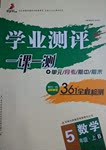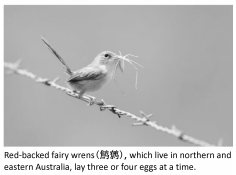
Cooking from Scratch W11 Change Your Life
Cooking from scratch is more than just making fresh food to eat. Your relationship to food will be transformed the more you handle ingredients(原料)and turn them into delicious recipes.
1. 1.
Instead of rushing through the grocery store looking for things that can be easily reheated into easy meals, you start paying attention to ingredients. You learn how to read food labels and ingredient lists, figuring out what’s in the products you buy.
2. You begin to taste food differently.
All food, whether prepared from scratch or eaten in a restaurant # tastes different after you learn how to cook—because now you know what goes into creating a dish. 2.
3. You start to see your body in a different way.
The connection between what you put into your body and how it makes you feel becomes clearer, once you’re making the food yourself. 3.
4. You can control everything that goes into your food.
4. I there are things to which you’re sensitive or allergic, or simply do not like, you can leave those out. You’re the boss in your own kitchen. You can make your favorite foods over and over again.
5. You create balance in your life.
This is my most favorite point of all. After working all day and caring for a busy young family, there is something comforting and calming about the act of cooking. 5. It’s my fun, hands-on creative time.
A. This is hugely liberating.
B. You learn how to do grocery shopping.
C. You choose to buy organic food for health.
D. Eating home-made food contributes to a good life.
E. I love escaping to the kitchen for an hour to prepare dinner.
F. You star looking for inspiration for how to recreate those tastes at home.
G.. Meals are planned from the bottom up # making you more interested in healthy food.
 活力课时同步练习册系列答案
活力课时同步练习册系列答案 学业测评一课一测系列答案
学业测评一课一测系列答案科目:高中英语 来源: 题型:完形填空
| 41.A.road | B.car | C.store | D.entrance |
| 42.A.coming up with | B.putting up with | C.keeping up with | D.keeping in touch with |
| 43.A.hospital | B.department | C.studio | D.waiting room |
| 44.A.herself | B.Mommie | C.doctors | D.nurses |
| 45.A.Whenever | B.Whatever | C.However | D.Wherever |
| 46.A.spent | B.taken | C.cost | D.wasted |
| 47.A.said | B.shared | C.spared | D.told |
| 48.A.cured | B.experienced | C.treated | D.experimented |
| 49.A.leg | B.face | C.head | D.hand |
| 50.A.realized | B.noticed | C.knew | D.wondered |
| 51.A.checks | B.belongings | C.bills | D.change |
| 52.A.unlike | B.because of | C.as to | D.in front of |
| 53.A.constantly | B.seldom | C.never | D.occasionally |
| 54.A.excited | B.curious | C.surprised | D.angry |
| 55.A.similar | B.familiar | C.different | D.unfortunate |
| 56.A.talk | B.think | C.complain | D.ask |
| 57.A.high | B.normal | C.full | D.low |
| 58.A.look | B.take | C.link | D.think |
| 59.A.reminded | B.informed | C.requested | D.admitted |
| 60.A.girl | B.example | C.exception | D.patient |
查看答案和解析>>
科目:高中英语 来源: 题型:阅读理解
 Before birth,babies can tell the difference between loud sounds and voices.They can even distinguish their mother's voice from that of a female stranger.But when it comes to embryonic learning(胎教),birds could rule the roost.As recently reported in The Auk:Ornithological Adrances,some mother birds may teach their young to sing even before they hatch(孵化).New-born chicks can then imitate their mom's call within a few days of enering the world.
Before birth,babies can tell the difference between loud sounds and voices.They can even distinguish their mother's voice from that of a female stranger.But when it comes to embryonic learning(胎教),birds could rule the roost.As recently reported in The Auk:Ornithological Adrances,some mother birds may teach their young to sing even before they hatch(孵化).New-born chicks can then imitate their mom's call within a few days of enering the world.查看答案和解析>>
科目:高中英语 来源: 题型:阅读理解
查看答案和解析>>
科目:高中英语 来源: 题型:短文改错
查看答案和解析>>
科目:高中英语 来源:2017届广东省揭阳市高三第一次模拟考试英语试卷(解析版) 题型:书面表达
假如你是李华,你的英国朋友Edward正在学习汉语,希望你推荐一个适合他学习汉语的网站。请你根据以下内容,给他回复邮件。
推荐网站:www.edchinese.com
网站内容:
1. 网络课程:中文情景对话、中国风俗、成语;
2. 其它:中文电影、中文歌曲、唐诗等;
3. 有在线教师答疑解惑。
费用:全部免费
注意: 1. 词数100左右;
2. 可以适当增加细节,以使行文连贯。
查看答案和解析>>
科目:高中英语 来源:2017届广东省揭阳市高三第一次模拟考试英语试卷(解析版) 题型:阅读理解
In agrarian(农业的), pre-industrial Europe, “you’d want to wake up early, start working with the sunrise, have a break to have the largest meal, and then you’d go back to work,” says Ken Albala, a professor of history at the University of the Pacific. “Later, at 5 or 6, you’d have a smaller supper.”
This comfortable cycle, in which the rhythms of the day helped shape the rhythms of the meals, gave rise to the custom of the large midday meal, eaten with the extended family. “Meals are the foundation of the family,” says Carole Couniban, a professor at Millersville University in Pennsylvania, “so there was a very important interconnection between eating together and strengthening family ties.”
Since industrialization, maintaining such a slow cultural metabolism has been much harder, with the long midday meal shrinking to whatever could be stuffed into a lunch bucket or bought at a food stand. Certainly, there were benefits. Modern techniques for producing and shipping food led to greater variety and quantity, including a tremendous increase in the amount of animal protein and dairy products available, making us more energetic than our ancestors.
Yet plenty has been lost too, even in cultures that still live to eat. Take Italy. It’s no secret that the Mediterranean diet is healthy, but it was also a joy to prepare and eat. Italians, says Counihan, traditionally began the day with a small meal. The big meal came at around 1 p.m. In between the midday meal and a late, smaller dinner came a small snack. Today, when time zones have less and less meaning, there is little tolerance for offices’ closing for lunch, and worsening traffic in cities means workers can’t make it home and back fast enough anyway. So the formerly small supper after sundown becomes the big meal of the day, the only one at which the family has a chance to get together. “The evening meal carries the full burden that used to be spread over two meals,” says Counihan.
1.What does Professor Carole Counihan say about pre-industrial European families eating meals together?
A. It was helpful to maintaining a nation’s tradition.
B. It brought family members closer to each other.
C. It was characteristic of the agrarian culture.
D. It enabled families to save a lot of money.
2.What does “cultural metabolism”(Line 1, Para. 3) refer to?
A. Evolutionary adaptation. B. Changes in lifestyle.
C. Social progress. D. Pace of life.
3.What does the author think of the food people eat today?
A. Its quality is usually guaranteed.
B. It is varied, abundant and nutritious.
C. It is more costly than what our ancestors ate.
D. Its production depends too much on technology.
4.What does the author say about Italians of the old days?
A. They enjoyed cooking as well as eating.
B. They ate a big dinner late in the evening.
C. They ate three meals regularly every day.
D. They were expert at cooking meals.
查看答案和解析>>
科目:高中英语 来源: 题型:阅读理解
| Comparison of the past and the present | ||
| In the past | At present | |
| A technique mainly used for offering information about the products'(46)availability | A trick used as a means of unfair (47)competition | |
| (48)Cases/Examplesgiven | Products | Wrong (49)practice(s) |
| V.V.D.Gold | l No product of the kind could (50)matchit. | |
| Captain Cook | l Captain Cook stressed on their"free flow"when their product was put into a container. | |
| Tata Salt | l Tata salt warned consumers to be (51)careful. | |
| Pepsi | l Too much advertisement on TV seemed to say that Pepsi was the cricketers'(52)favorite. | |
| Complan | l Complan claimed that their product has more ingredients (53)compared to Brand H. | |
| (54)Solutions | The competitors'products are not (55)allowedto be mentioned in the advertisement. Stricter laws should be made to protect every producers'and consumers'benefits. | |
查看答案和解析>>
科目:高中英语 来源: 题型:书面表达
查看答案和解析>>
湖北省互联网违法和不良信息举报平台 | 网上有害信息举报专区 | 电信诈骗举报专区 | 涉历史虚无主义有害信息举报专区 | 涉企侵权举报专区
违法和不良信息举报电话:027-86699610 举报邮箱:58377363@163.com